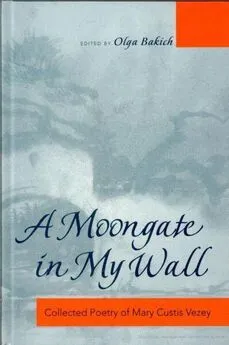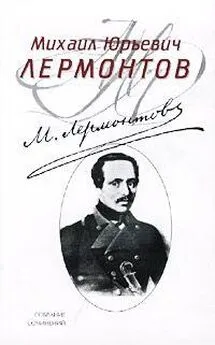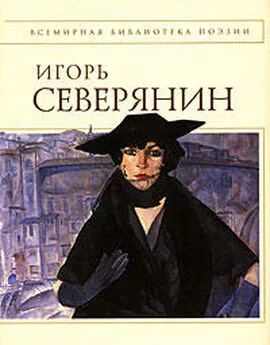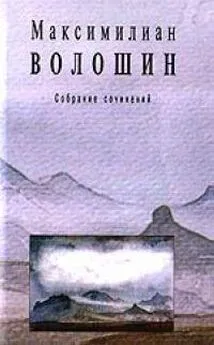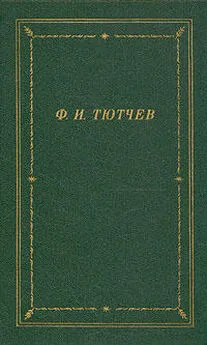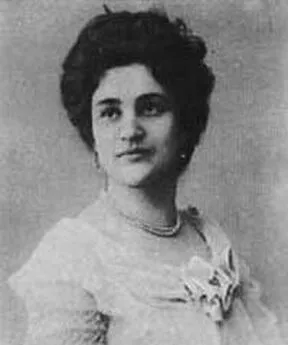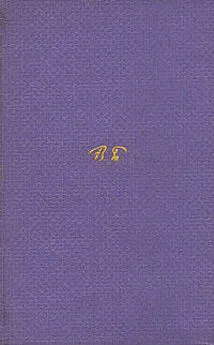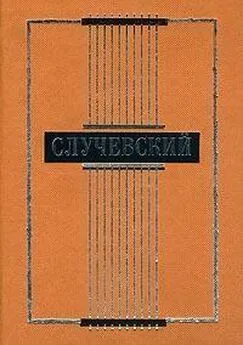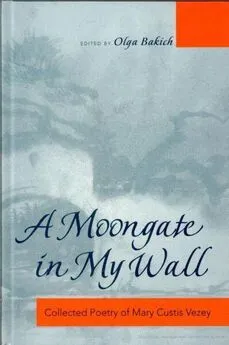Мария Визи - A moongate in my wall: собрание стихотворений
- Название:A moongate in my wall: собрание стихотворений
- Автор:
- Жанр:
- Издательство:Peter Lang Publishing, Inc.
- Год:2005
- Город:New York
- ISBN:0-8204-7837-7
- Рейтинг:
- Избранное:Добавить в избранное
-
Отзывы:
-
Ваша оценка:
Мария Визи - A moongate in my wall: собрание стихотворений краткое содержание
Мария Визи (1904-1994) – поэтесса «первой волны» русской эмиграции. Данное собрание стихотворений, изданное в США, под редакцией Ольги Бакич, наиболее полное на данный момент собрание ее поэтических произведений и переводов.
Издание состоит из 4 частей и включает в себя:
1. Три опубликованных сборника М. Визи: 1929, 1936 и 1973 гг.
2. Стихотворения, не вошедшие в сборники, написанные на русском языке.
3. Стихотворения, не вошедшие в сборники, написанные на английском языке.
4. Неопубликованные переводы
Вступительная статья и комментарии на английском языке.
A moongate in my wall: собрание стихотворений - читать онлайн бесплатно полную версию (весь текст целиком)
Интервал:
Закладка:
265
Mary Vezey's "(??)" in the eighth line presumably indicates a search for a better word.
266
Blok supplemented the published poem with a note: «Эпитафия сочинена Полицианом и вырезана на могильной плите в Сполотском соборе по повелению Лаврентия Великолепного». Fra Filippo Lippi (са. 1406–1469) was an Italian painter of the early Renaissance.
267
Variant in the fifth line of the second stanza in the manuscript: «could have you come to visit me».
268
Андрей Блох (ок. 1896 — после 1930) Данные о поэте и переводчике крайне скудны: известно, что в начале 20-х годов он служил во французском Иностранном легионе; печатался во множестве периодических изданий (преимущественно выходивших в Латвии на русском языке между 1922 и 1930 годами). Автор двух поэтических сборников — «Стихотворения» (1927) и «Поэмы и стихи» (1929); оба изданы в Париже.
269
From the collection Жемчуга (1910; 1918).
270
From the collection Жемчуга (1910; 1918).
271
Unfinished translation from the collection Огненный столп (1921). Variant in the last line second stanza of part three in the manuscript: «that bays the moon when it is bright on high». Igdrazil: a gigantic ash-tree, which in ancient Spain symbolized the universe
272
From the collection Прикосновенье, Munich, 1959.
273
From the collection Навстречу небу, Frankfurt-on-Maine, 1952.
274
From the collection След жизни, Frankfurt-on-Maine, 1950.
275
From the collection Разрозненная тайна, Munich, 1965. Variant in the first line of the first stanza in the manuscript: «Oh, yes, it's good! Not in the present.»
276
From the collection Навстречу небу, Frankfurt-on-Maine, 1952.
277
From the collection След жизни, Frankfurt-on-Maine, 1950.
278
From the collection След жизни, Frankfurt-on-Maine, 1950.
279
First part of a poem from the collection ,Неуловимый спутник, Frankfurt-on-Maine, 1956
280
From the collection Прикосновенье, Munich, 1959 Variant in the first line of the last stanza: «Our world is sick. It whispers invocations».
281
From the collection Прикосновенье, Munich, 1959.
282
From the collection Навстречу небу, Frankfurt-on-Maine, 1952.
283
From the collection Прикосновенье, Munich, 1959.
284
From the collection Разрозненная тайна, Munich, 1965.
285
From the collection Навстречу небу, Frankfurt-on-Maine, 1952
286
Unfinished translation from the collection Вторая книга стихов, Paris, 1928.
287
Unfinished translation from the collection Вторая книга стихов, Paris, 1928.
288
Poem not found in a collection of this poet; presumably translated from a publication in a Russian emigre newspaper.
289
From the collection Южный дом, Munich, 1968.
290
A.N. Pleshcheev's poem was published with notation «С английского».
291
From the collection Закат, Paris, 1931.
292
From the collection Закат, Paris, 1931.
293
Poem not found in a collection of this poet, presumably translated from a publication in a Russian emigre newspaper.
294
From the collection Закат, Paris, 1931.
295
Second part of the poem from the collection Закат, Paris, 1931
296
From the collection Закат, Paris, 1931.
297
From the collection Закат, Paris, 1931.
298
From the collection Закат, Paris, 1931.
299
From the collection Наедине, Paris, 1938.
300
Poem not found in a collection of this poet, presumably translated from a publication in a Russian emigre newspaper.
301
From the collection Закат, Paris, 1931.
302
Poem not found in a collection of this poet, presumably translated from a publication in a Russian emigre newspaper.
303
From the collection Наедине, Paris, 1938.
304
From the collection Стихотворения, Milan, 1977.
305
From the collection Прозрачная тьма. Стихи разных лет , Livorno, 1969
306
From the antology Содружество, Washington, 1966.
307
Poem not found in a collection of this poet, presumably translated from a publication in a Russian emigre newspaper.
308
Poem not found in a collection of this poet, presumably translated from a publication in a Russian emigre newspaper.
309
From the collection Тяжелая лира, Berlin, 1923. Variant in the thirty-seventh line in the manuscript: «but doesn't want to keep too from hearing».
310
Comment by Mary Vezey: «From the Sung Collection.»
311
Comment by Mary Vezey: «From the Fukiu mountain district of So-Chau, Kiangsu Province. Many centuries old.»
312
Attributed to Wang Anshi in manuscript. Variant in the fifth line in the manuscript: «Так, к востоку от горной страны».
313
The translations in this section all come from poems originally printed in Корейские шестистишия, Alma-Ata, 1956. Poems 683–688 come from the cycle «Девять косанских песен», 691–695 are from the cycle «Песни о пяти друзьях», 696–699 from the cycle «Новые песни гор», ami poem 700 from the cycle «Весенние песни рыбаков». The explanations of Korean place names and words are those of the Russian translators, A. Zhovtis and P. Pak Ir.
314
Variant in the second line in the manuscript: «Has it parted from someone?»
315
This poem speaks about the time of terror during reign of King Sedyo in the 15th century.
316
In ancient Korean tales Mount Pon-ne-san is a Mountain of Happy Grasses, where the grass of eternal youth grows.
317
Variant in the manuscript: «Over the chilly autumn stream / Evening breezes play, / No matter how often I cast my line/ I can catch no fish today./ I have only filled my soory sloop / With all the moonbeams I could scoop.»
318
Variant in the manuscript: «I made three rooms of day / For myself and for my friends / I live in one, the moon in another, / and the free wind in the third./ But the hills stayed alone / Under open skies in autumn rains».
319
Kosang is a coastal region in Korea; Chu Xi (1120–1188) was a Chinese Confucian philosopher, and Mu Yi his native village.
320
Ilgok was the First Bend in the river and the place name. Variant in the fourth line in the manuscript: «And the mountains have floated up on the horizon».
321
Igok was the Second Bend in the river.
322
Samgok was the Third Bend in the river.
323
Sagok was the Fourth Bend in the river. Variant in the fourth line in the manuscript: «Reflects the mountain tops and majestic woods».
324
Ogok was the Fifth Bend in the river. Variant in the fifth line in the manuscript: «The Forest Screen breathes of resin».
325
Variant in the fifth line in the manuscript: «Dusk has settled upon the darkened water».
326
A space is left in the manuscript for the translation of the Russian word «ogarok» in the fifth line: «Но огарок свечи no утра додымится».
327
Variant in the manuscript: «Exiled by enemies to far Gangho, / In loneliness five loyal friends I found: / Water, Bamboo, a Cliff, a Pine, the Moon / That rises over yonder distant mound, / No calumny will sway them to betrayal, / In lofty friendship they will never fail».
328
The word «chihbi» means a hut
329
A space is left in the third line in the manuscript for the translation of the Russian word «целомудренный».
Интервал:
Закладка:
